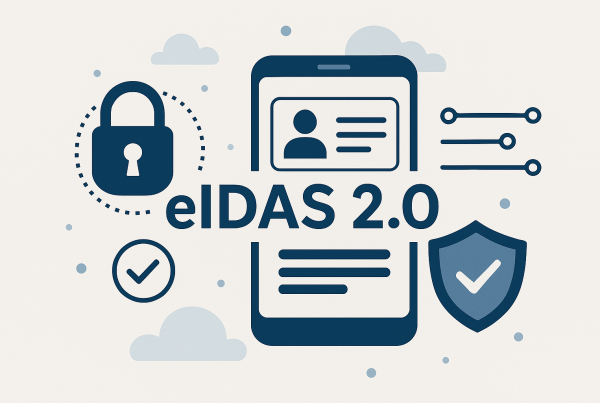In everyday life, you encounter APIs all the time without really knowing it. In this overview, we will show you exactly what this is and what advantages the SIGN8 API offers companies.
If you’ve ever booked a flight or looked up a route on Google Maps, you’ve already come into contact with APIs. However, very few people know what exactly it is and what advantages this technology can offer. Defined API as “Application Programming Interface” and can be translated as programming interface that allows a foreign programmer to get access to selected functions for another software. Thus, two programs can communicate with each other via the API, exchange data and pass commands. This works for desktop software just as it does for mobile apps or web applications. Even a single program can be structured in such a way that different modules communicate with each other via interfaces. So, for example, if you want to book a flight and you have entered the travel details, the moment you click on “Search”, all the APIs of the providers connected to the website are contacted to find the flight with the desired restrictions and display them. But all this runs in the background and takes only a few seconds.
We also offer our own SIGN8 API to implement the e-signatures into an already existing CRM or ERP system of our customers and partners. Especially for CRM providers, the implementation of SIGN8 is very beneficial, as many signature processes take place there, such as the creation of contracts, like an NDA (non-disclosure agreement), quotations, etc. The only prerequisite for the implementation is an existing system that can control APIs, whereby the process itself only takes a few days. It does not matter how big the company is or in which industry it operates. Our technology partner ADITO is also convinced by the SIGN8 API, because it was implemented in the company’s existing CRM system, so that all ADITO employees can now send offers directly from their own CRM system and additionally use SIGN8 for digital workflows without having to learn a new tool.
However, implementing SIGN8 into a system via an API has many other advantages. Automated transfer of data from another system to SIGN8 enables a faster and more flexible workflow by eliminating the need for a manual document process. In addition, the implementation of SIGN8 via the API means that there is no need for a media break, since SIGN8 does not have to be opened separately for use, but everything runs via a tool. In addition, completion times are also faster and the susceptibility to errors is significantly reduced, as data transfer is automatic. As one of the most important advantages, costs and a high expenditure of time can be saved. Compared to a manual signature process, an average of up to 4.98€* is saved per agreement, so SIGN8 is already worthwhile after 3 months. In addition, a digital signature process appears more innovative, sustainable and modern in times of e-commerce, so that the implementation of SIGN8 also has a positive image effect.
The range of e-signatures in combination with the API makes SIGN8 an “all-in-one” solution and clearly sets it apart from the market. For more information, please feel free to visit our website at: www.sign8.eu.
If you have any questions about implementation via APIs or SIGN8 in general, feel free to contact us at: info@sign8.eu.
* Cf. Forrester Studies (2018), at: https://www.pressebox.de/inaktiv/docusign-inc/Forrester-Studie-zeigt-Elektronische-Signatur-beschleunigt-Vertragsabschluesse-um-rund-70-Prozent/boxid/935527



